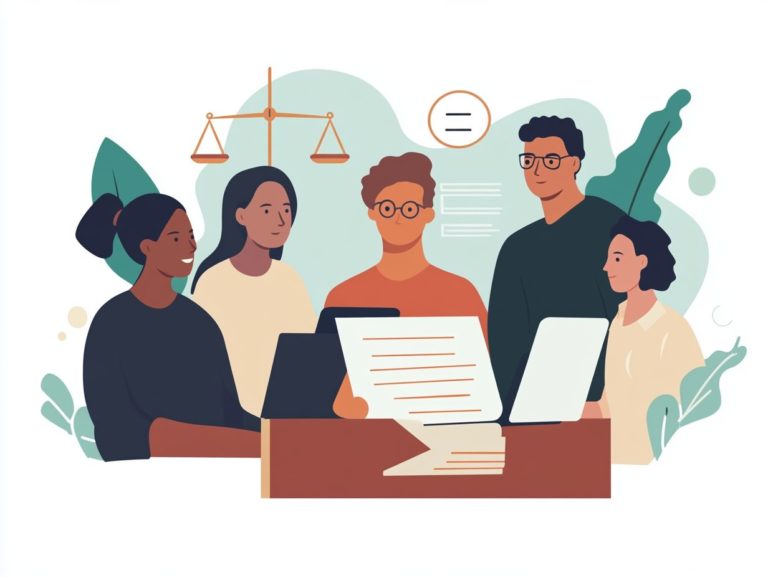Steps to Take if Rights Are Denied
Understanding your rights is essential when navigating the complexities of the legal landscape. It’s not uncommon to feel uncertain about what to do when those rights are denied.
This article provides vital information regarding your protected rights, how to document any violations, and the steps you can take to challenge unjust decisions.
It guides you in collecting evidence, seeking legal assistance, and filing complaints. This helps you take decisive action and safeguard your rights both now and in the future.
Contents
- Key Takeaways:
- Understanding Your Rights
- What Rights Are Protected?
- What to Do if Your Rights Are Denied
- Documenting the Denial
- Taking Action Against the Denial
- Protecting Your Rights in the Future
- Preventative Measures
- Knowing When to Seek Help
- Frequently Asked Questions
- What are the first steps to take if my rights are denied?
- How can I communicate my concerns about denied rights?
- What should I do if my rights are being denied by an organization or business?
- Can I appeal a decision to deny my rights?
- What are my options if my rights are continuously denied?
- Are there any resources available to help with denied rights situations?
Key Takeaways:
- Know your rights and what to do if they are denied. Understand which rights are protected and take action against any denial.
- Document the denial by collecting evidence and seeking legal assistance. This helps build a strong case.
- Protect your rights in the future by taking preventative measures and knowing when to seek help. This can prevent future denials.
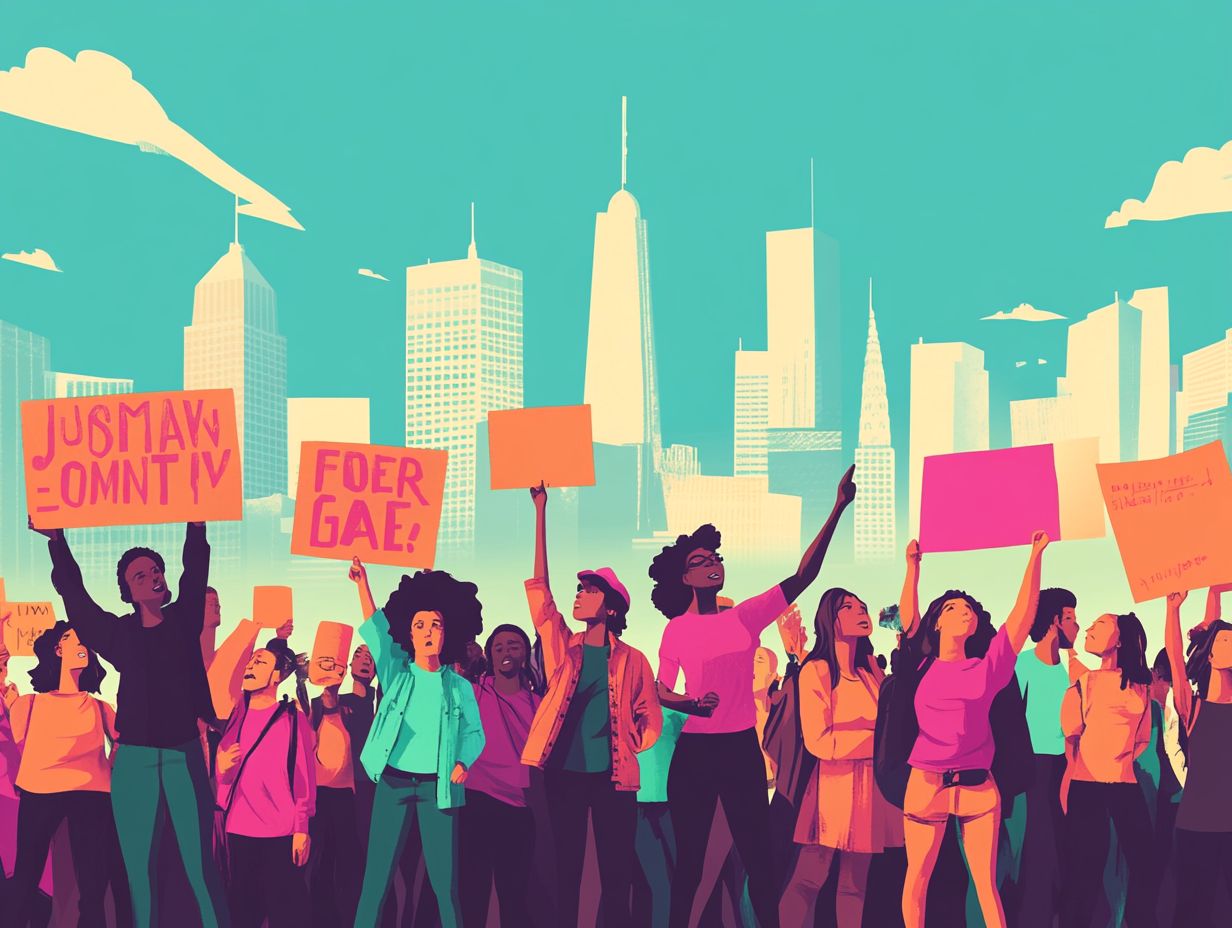
Understanding Your Rights
Understanding your rights is essential for navigating the complexities of the rights that protect us from unfair treatment guaranteed by the U.S. Constitution and federal laws.
These rights include health care, employment, voting rights, and protection against discrimination based on age, gender, or immigration status.
Individuals in the LGBTQ community, ethnic groups, and diverse religious backgrounds may face unique challenges that require a thorough understanding of these rights.
Knowing your rights helps you stand up against injustice and discrimination, ensuring your voice is heard in the pursuit of equality.
What Rights Are Protected?
The U.S. Constitution and federal laws protect a range of civil rights fundamental for ensuring equality and justice in various areas of life, such as health care and voting.
These rights are crucial for cultivating a society where you can express your beliefs freely and access essential medical services.
Voting rights, for example, form the foundation of democracy, allowing you to voice your opinions and choose your representatives.
Laws against discrimination in employment and public facilities create an environment that champions diversity and inclusion.
The right to health care highlights the importance of access to essential resources, reinforcing that everyone deserves the chance to lead a healthy life, regardless of their background.
What to Do if Your Rights Are Denied
If you believe your rights have been compromised due to discrimination or other violations, it s crucial to understand the complaint process and legal options available.
Start by gathering all relevant documentation and evidence that supports your claim, such as emails, photos, or witness statements.
Consider reaching out to organizations like the Department of Justice or the Office for Civil Rights (OCR). These entities provide channels for filing formal complaints.
Understanding the specific procedures of these organizations is vital, as they guide you through the steps to ensure your civil rights protections are upheld.
You can also explore legal options, such as seeking representation from advocacy groups or contacting a local attorney specializing in civil rights law, to help face these challenges.
Documenting the Denial
Documenting the denial of your rights is an essential step in addressing discrimination and ensuring your case is effectively represented throughout the complaint process.
This involves gathering evidence and maintaining comprehensive records of incidents, including personal interactions with authorities, such as the police.
Collecting Evidence
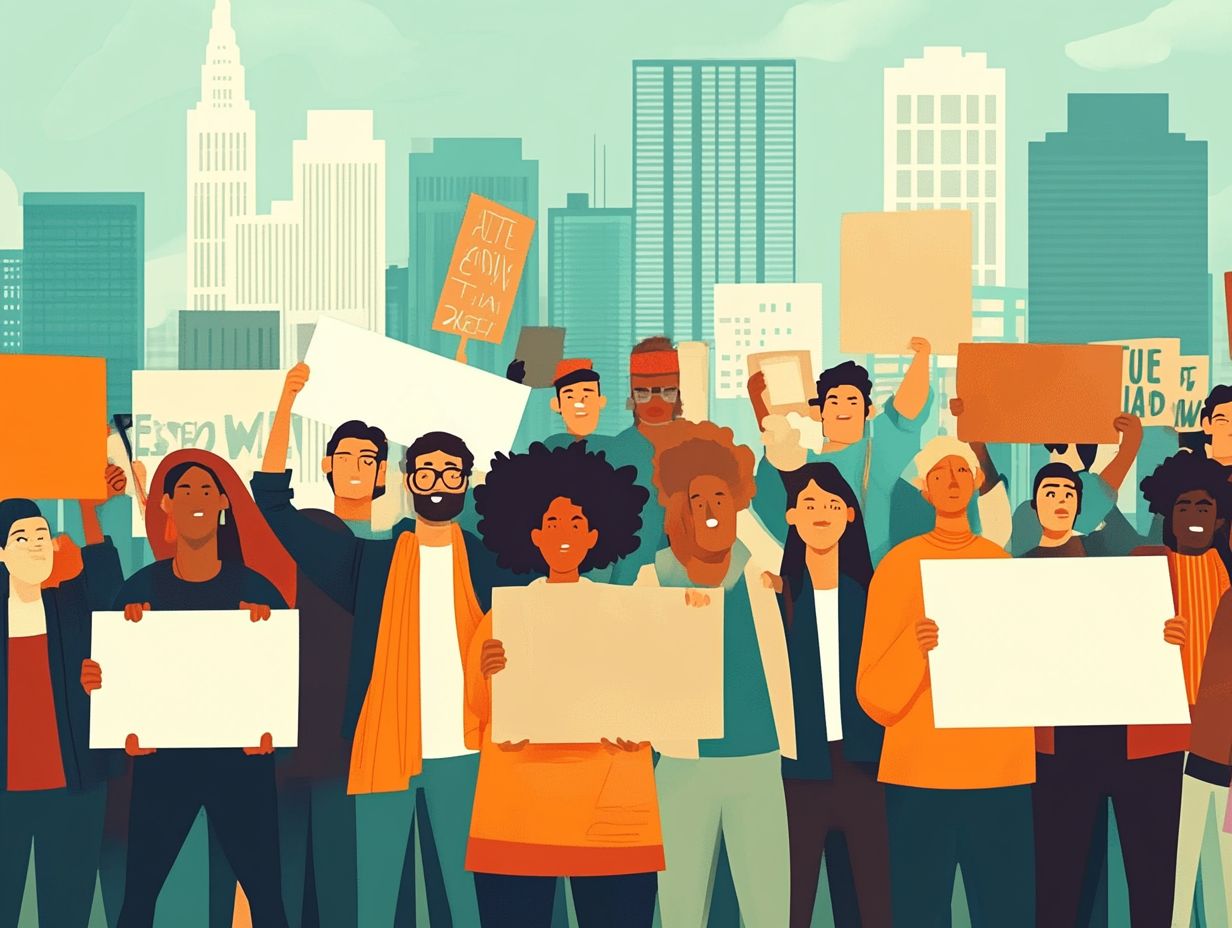
Collecting evidence is essential when documenting the denial of your rights. It supports your claims and plays a critical role in the complaint process against discrimination.
To build a strong case, meticulously record each incident. Capture the dates, times, and locations where discriminatory behavior occurred. Gathering witness statements from those who observed the behavior is also important, as their accounts add credibility to your claims.
Don’t overlook the value of obtaining relevant documentation. Emails, memos, and performance reviews can all strengthen your narrative and illustrate patterns of discrimination. This comprehensive approach to evidence collection enhances the legitimacy of your case and ensures all aspects of the situation are effectively presented.
Seeking Legal Assistance
Seeking legal assistance is a vital step in navigating the complexities of the complaint process related to civil rights violations and discrimination under federal laws.
Finding the right attorney is key; they can guide you through intricate legal frameworks and procedures. Civil rights attorneys specialize in various cases, including employment discrimination, housing issues, and police misconduct. They ensure your voice is heard if you ve faced injustice.
Consulting with these professionals clarifies your rights and strengthens your case. Legal support helps you articulate grievances, gather necessary evidence, and prepare for hearings, leading to a more effective resolution of your complaints.
Prioritize legal expertise to pursue justice with confidence. Don’t wait reach out to a civil rights attorney today!
Taking Action Against the Denial
Acting quickly to defend your rights is essential for securing justice and accountability. This often involves filing a formal complaint and, if necessary, pursuing an appeal to ensure your voice is heard.
Filing a Complaint
Filing a complaint is a crucial step in addressing discrimination and safeguarding your civil rights under federal laws. Understanding the process enables you to navigate the complexities involved confidently.
To start a complaint, gather essential documentation, including:
- Your personal identification, like a driver’s license, to verify your identity.
- A detailed account of the incidents in question.
- Supporting evidence such as emails, photographs, or witness statements.
Depending on your complaint’s nature, you may need to file with various organizations, like the Equal Employment Opportunity Commission or local civil rights offices.
Remember, deadlines matter! File your complaint within 30 to 300 days to ensure it counts. Adhering to these timelines can significantly influence the outcome of your complaint, so take the time to get it right.
Appealing the Decision
If your initial complaint is denied, understanding how to appeal that decision is vital in pursuing your civil rights against discrimination.
The appeal process can vary depending on the agency or court involved, but it typically requires a thorough review of the original findings. Prepare meticulously by gathering additional evidence or documentation that strengthens your case, such as new witness statements or recent documents.
Establishing a timeline is crucial, as appeals often need to be filed within a specific period following the denial. Additionally, enlisting legal representation can boost your chances of success. An experienced attorney can navigate the complexities of the process and present your argument with clarity and conviction.
Protecting Your Rights in the Future
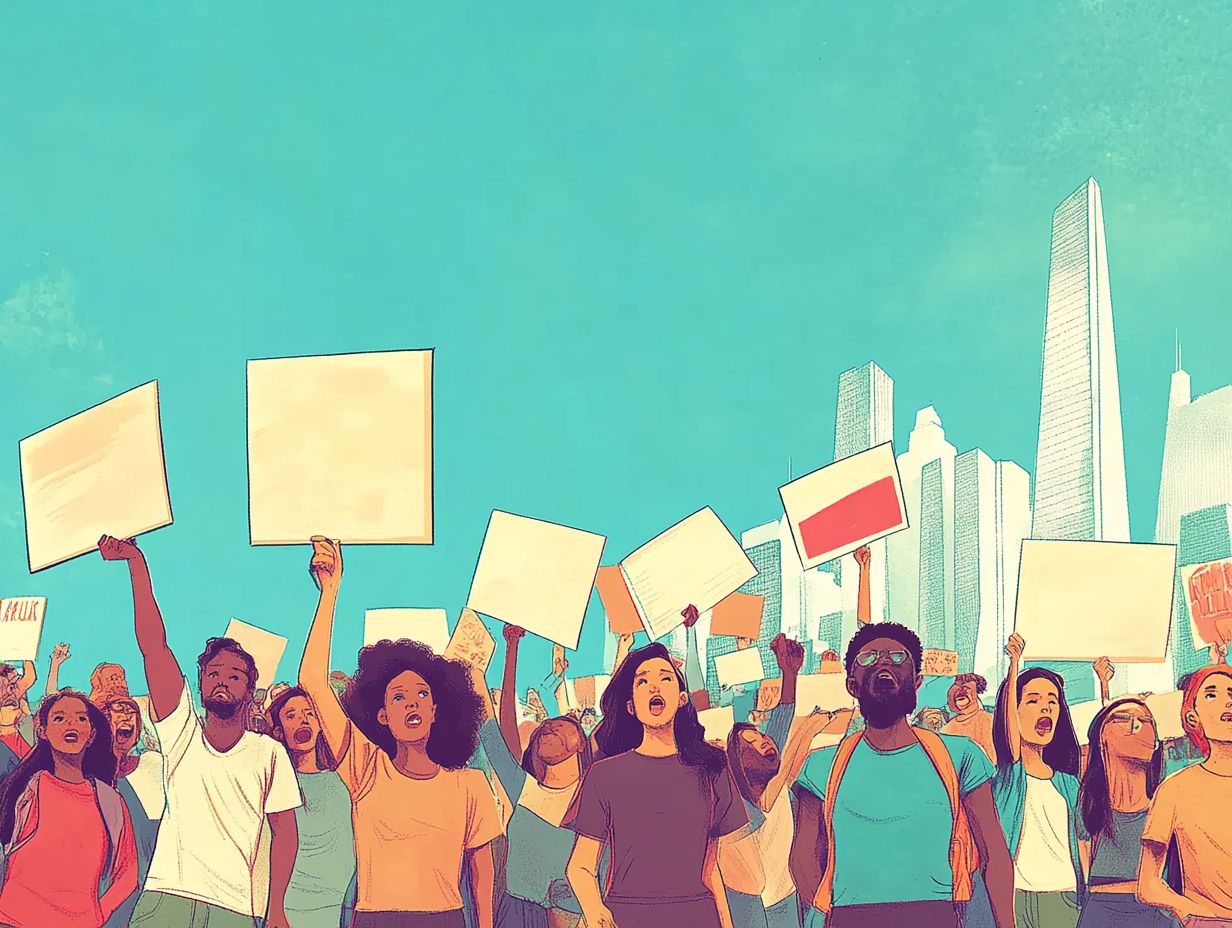
Safeguarding your rights in the future demands proactive measures and a solid grasp of your legal protections.
This includes understanding your educational rights and knowing the pathways to seek assistance when necessary.
Preventative Measures
Implementing preventative measures is crucial for protecting your rights and ensuring that discrimination doesn t happen in the first place.
One effective approach is to learn about local laws and regulations that safeguard individual rights. Being aware of these legal protections enables you to advocate for yourself and others within your community.
Participating in workshops or training sessions can deepen your understanding of your rights. Connecting with community resources, such as advocacy groups, provides essential support. Engage with these resources to strengthen your network and foster a culture of awareness where you and others can share experiences and strategies for prevention.
Knowing When to Seek Help
It’s vital to know when to reach out for help! If you encounter workplace harassment or discrimination based on your race, gender, or sexual orientation, understand your rights and the resources available to you.
Local advocacy groups, legal clinics, or the Equal Employment Opportunity Commission (EEOC) can offer invaluable support. Gathering evidence, such as emails or witness statements, will significantly strengthen your claims.
Many organizations provide hotlines and online resources, allowing you to access guidance conveniently without feeling overwhelmed. Connecting with a qualified attorney can also help you navigate the complexities of filing a complaint or pursuing legal action.
Frequently Asked Questions
Here are some common questions about handling denied rights:
What are the first steps to take if my rights are denied?
The first step is to remain calm and assess the situation. Note the specific rights being denied and gather evidence or witnesses to support your claim.
How can I communicate my concerns about denied rights?
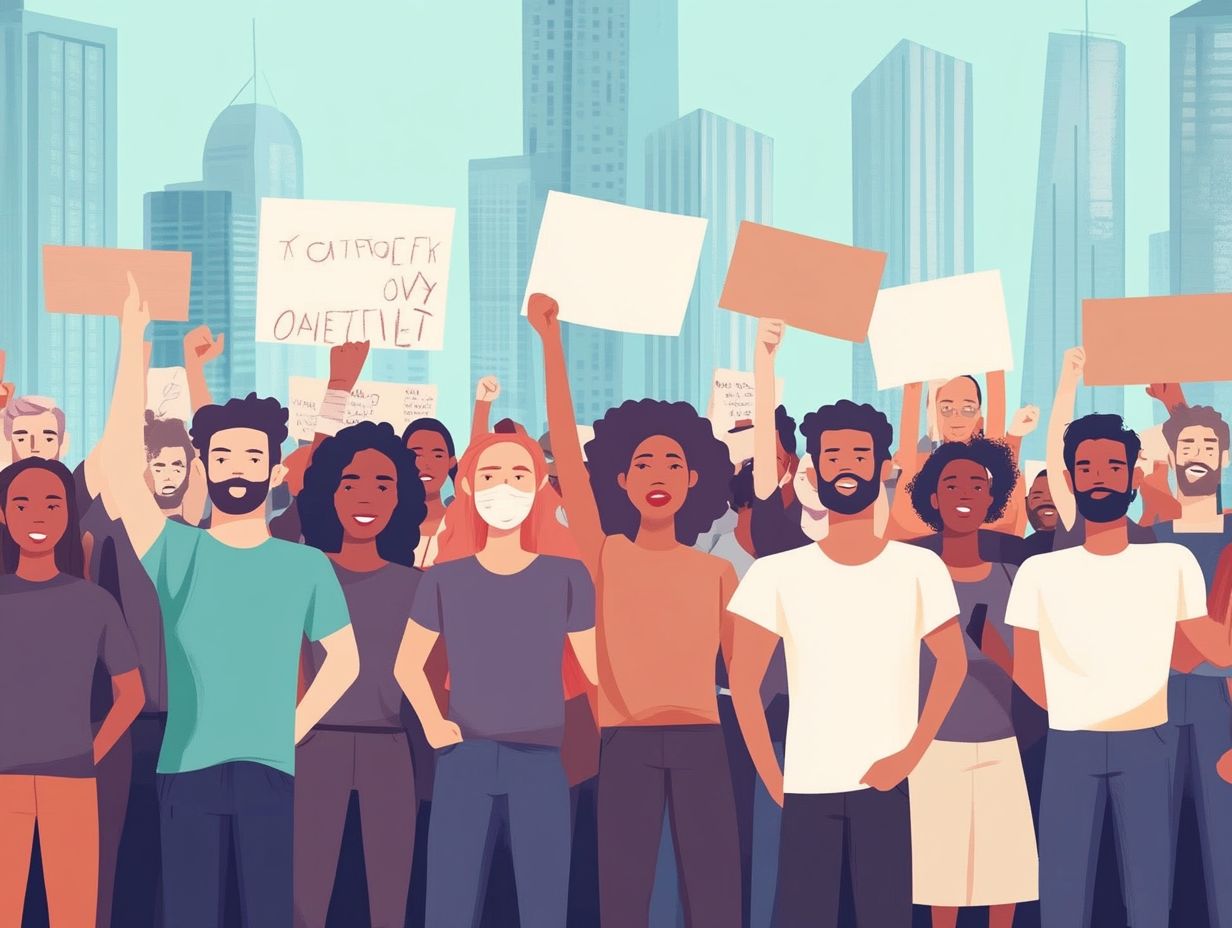
You can communicate your concerns by speaking with the individual or organization denying your rights. Be respectful but firm in explaining your position and provide any evidence or witnesses that support your claim.
What should I do if my rights are being denied by an organization or business?
If your rights are being denied by an organization or business, file a complaint with the relevant governing body or agency. Seek legal advice from a lawyer or contact a human rights organization for assistance.
Can I appeal a decision to deny my rights?
Yes, you can appeal a decision to deny your rights. File an appeal with the relevant governing body or agency and provide any evidence or witnesses that support your claim. Seeking legal advice can strengthen your appeal.
What are my options if my rights are continuously denied?
If your rights are continuously denied, seek legal assistance and file a civil lawsuit against the individual or organization responsible for the denial. You can also file a complaint with the relevant governing body or agency while continuing to gather evidence to support your claim.
Are there any resources available to help with denied rights situations?
Yes, resources are available to help with denied rights situations. Contact a human rights organization, seek legal assistance, or file a complaint with the relevant governing body or agency. It s important to know and exercise your rights in any given situation.
Don’t hesitate to reach out for help if you need it!



